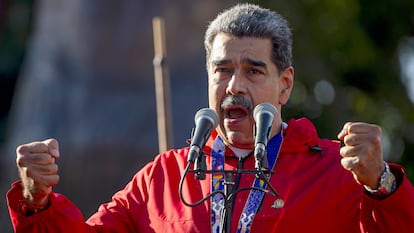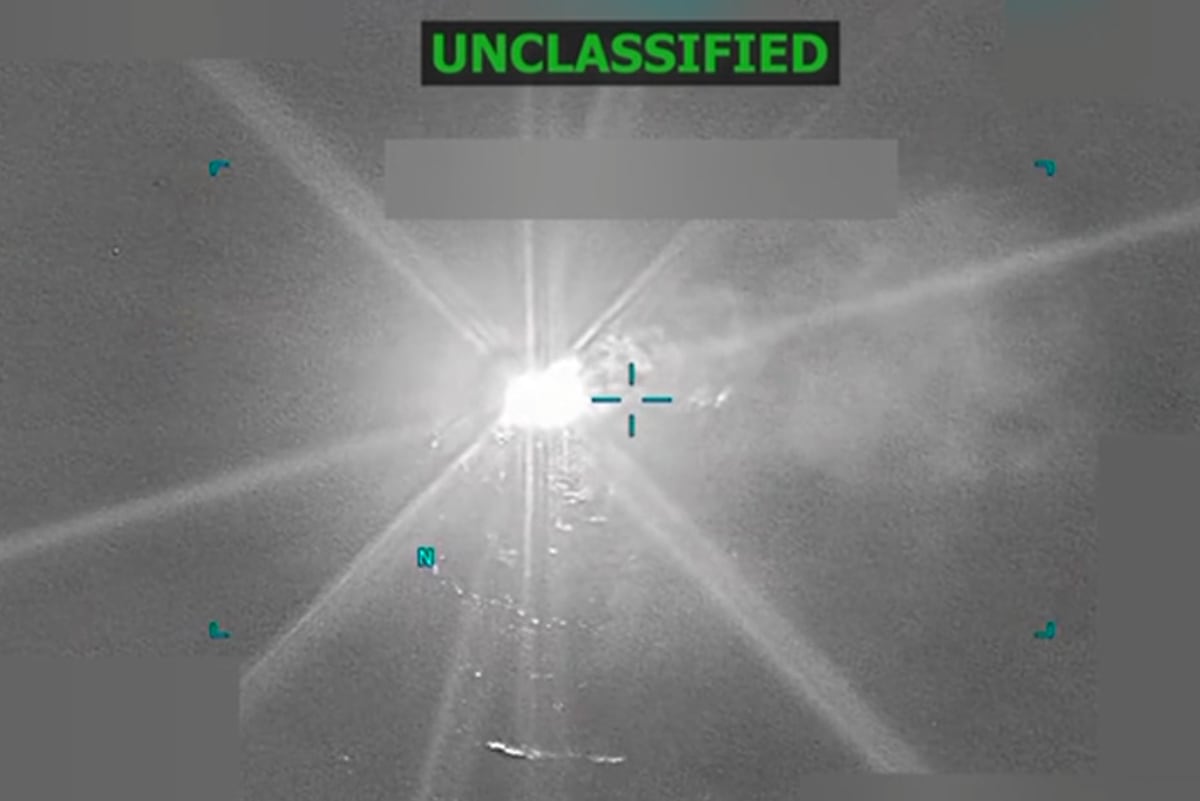The U.S. military has carried out a new attack against a suspected drug boat in Caribbean waters. The operation, which this time was not initially announced by either President Donald Trump, by his Secretary of Defense Pete Hegseth, or by administration spokespersons, was instead confirmed by a U.S. official to Reuters.
This isn’t the only new element in what has become something of a ritual in recent weeks: this time, unlike the other five attacks on vessels off the Venezuelan coast, one or more crew members survived, although Reuters did not specify how many and did not provide their identities.
Since early September, the U.S. government has ordered extrajudicial military operations in international waters in the Caribbean against vessels it accuses of transporting drugs from Venezuela to the coast of the United States. As of Thursday, the U.S. military had killed without trial at least 27 civilians whom the Trump administration accuses of belonging to criminal gangs such as the Tren de Aragua, included by the State Department on its list of “designated terrorist organizations,” or the Cartel of the Suns. No details have been provided about the crew members, nor evidence that they were transporting drugs.
Trump considers the United States to be at “war” against these gangs, and claims that suspected members are “armed combatants” whom Washington has the right to kill, even though the idea is contrary to the principles of international law. A month and a half after the start of that campaign, there is little doubt that this supposed war on drugs is concealing an attempt to pressure for regime change in Venezuela. During his first presidency, Trump already tried to remove Venezuelan President Nicolás Maduro from power.
Double reward
The United States considers Maduro to be the leader of a narco-state and is offering a $50 million reward, which they doubled last August, for any information leading to his arrest. Chavismo stole the elections from the opposition last year, according to most international organizations and dozens of democratic countries.
 Venezuela President Nicolás Maduro, on Sunday in Caracas.MIGUEL GUTIERREZ (EFE)
Venezuela President Nicolás Maduro, on Sunday in Caracas.MIGUEL GUTIERREZ (EFE)
María Corina Machado, the leader of the opposition, has been living in hiding since then, her whereabouts unknown. Last Friday, she was awarded the Nobel Peace Prize.
On Thursday, the day after Trump confirmed that he had authorized CIA covert operations in Venezuelan territory, The Washington Post reported, based on images taken from social media, on new military movements in the Caribbean that suggest an escalation of the United States’ aggressive strategy toward Venezuela. As part of “military exercises,” the U.S. military’s elite Special Operations aviation unit moved within 90 miles of the Venezuelan coast in recent days.
ABC News reported that three B-52 bombers took off from a base in Louisiana on Wednesday and flew for hours near the Venezuelan coast in what can be viewed as a show of force by the Trump administration. B-52s are long-range aircraft that have been used in war zones such as Iraq and Syria.
Trump’s escalation in the Caribbean has drawn criticism from senators from both parties on Capitol Hill. The Senate voted unsuccessfully last week to shorten the 60-day deadline the U.S. president had given himself to carry out such attacks without going through Congress, under the 1973 War Powers Act.
Regarding the reasons for his authorization of the CIA’s covert operations, Trump offered two reasons during an Oval Office event on Wednesday. “Venezuela emptied their prisons into the United States of America.” And: “we have a lot of drugs coming in from Venezuela, and a lot of the Venezuelan drugs come in through the sea… We’re going to stop them by land also.” The U.S. president had already indicated weeks ago that his strategy of attacks against drug boats was entering a “second phase” that would include ground operations.
Images reviewed by The Washington Post show MH-6 Little Bird and MH-60 Black Hawk attack helicopters over open water near oil and gas platforms. Analysis indicated the helicopters were flying off the northeast coast of Trinidad, coming within 90 miles of several points along the Venezuelan coastline. Mark Cancian, a military expert cited by the newspaper, believes the involvement of the Little Birds, small attack aircraft designed to transport troops and provide close-quarters support, suggests preparations for possible ground missions.
Sign up for our weekly newsletter to get more English-language news coverage from EL PAÍS USA Edition

